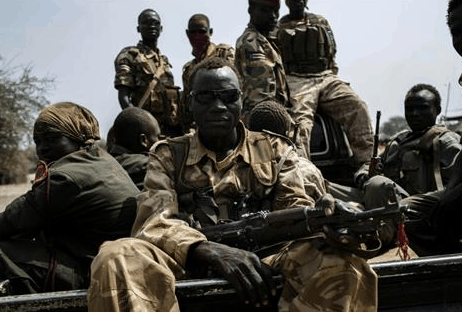
In 2007, when Russia was awarded the bid to host the 2014 Winter Olympics, the pledged budget was $12 billion. As the Sochi Games commence, the final bill for these Olympic games rests around $51 billion.
This enormous overspend makes these Olympics the most costly ever. Given that these are a Winter Olympics makes that fact even more astonishing as, according to Bloomberg Businessweek, “Winter Olympiads host fewer athletes (2,500 vs. 11,000), fewer events (86 vs. 300), and fewer venues (15 vs. 40) than the Summer Games.”
The chaos in Olympic Village has been well-documented over the past week. It seems most of the excess money has been lost somewhere in political corruption—ending up in the pockets of various powerful people throughout the country. And that’s not very good, but it’s far from the most troubling statistic about this year’s Olympic Games.
The opening ceremony for the Winter Olympics in Sochi is tomorrow night, but as we watch, let’s not forget that these Games have come at a huge and devastating cost, both monetarily and otherwise.
“The Olympics,” wrote essayist Chuck Klosterman before the 2004 Summer Games in Athens, “are designed for people who want to care about something without considering why.”
Ten years later, this is still how the Olympics are designed. We can appreciate and be inspired by a spectacle of sport and a mystical display of global camaraderie,but we must not forget that such a spectacle will be (as it has been already) enveloped by many problems.
Counting the Cost
Human Rights
Like most Olympic settings, Sochi has had to be almost entirely reconstructed. In a guide to reporters, Human Rights Watch has documented the exploitation of workers, of which 16,000 are migrant, in the building of the sparkling Olympic facilities. Violations included: “nonpayment of wages,” “failures to provide employment contracts,” “excessive working hours… without payment,” “overcrowded employer-provided housing” and “inadequate employer-provided meals.”
Furthermore, the safety and human rights concerns of LGBT athletes, spectators and reporters in Sochi are unequivocal. A Russian law prohibits any sort of “propaganda of non-traditional sexual orientation.” Along with limiting free speech, the law may have helped fuel increasing incidents of shockingly violent hate crimes against those who identify as LGBT in Russia. This should greatly concern Christians.
While the International Olympic Committee has stated that it has been “assured … that the legislation will not affect those attending or taking part in the games,” the Russian Ministry of Interior has also stated that the anti-propaganda laws would still be enforced in Sochi.
Environmental
Environmental concerns surround the construction of the Sochi Games. While Putin claims to be “choosing the environment over money” geologists and environmentalists report concern over the long-term effects of the Sochi Olympic project.
In October of last year, the Associated Press reported that Russia’s state-owned rail monopoly was dumping tons of construction waste into an illegal landfill, breaching the “Zero Waste” Olympic Pledge and raising concerns of contamination of the water supply for Sochi.
Security
In what has become an Olympic regular, security is a primary concern. Last October and twice at the end of December there were bombings in the city of Volgograd just north of Sochi. Following these attacks, Russian authorities have placed a proverbial “ring of steel” around Sochi.
These games also unceremoniously mark the 150th anniversary of the defeat of the Circassians in the Russian-Caucasus War; the war’s final battles (which some define as genocide) were fought in Sochi. Tragically, the location for the skiing and snowboarding events was the location of the final massacre of the Circassians, and is even named “Red Hill” for the blood spilt.
What it Means
Almost everyone wants you to think that the Olympics are important because of what is happening at the events themselves. Athletes have invested almost their whole lives for these events. Politicians want to show off a part of their country as a swanky or exotic tourist destination. Activists use the world stage to spread a message.
Vladimir Putin cares more about what the Sochi Olympics are about than perhaps anyone else in the world. In focusing on what the Winter Olympics will look like and what the Games will be about; Putin, like the rest of us, seems to have forgotten to ask “why?”
Why does overspending state money by more than 400 percent matter in a world where people die everyday of preventable diseases? Why do the conditions and treatment of workers matter even when the workers are willingly accepting the work? Why does preserving the natural environment matter in a world with a scarcity of resources? Why does protecting human rights matter more than protecting national values? Why does the safety of our LBGT friends and neighbors matter, regardless of our convictions about such lifestyles? Why do bombings and public violence always follow the Olympic games no matter where they are held? Why does indigenous history matter in a world where global connectivity and communication seem to destroy local cultures?
In 1936, the U.S. probably should have boycotted the Olympics. U.S. athletes participated in the Berlin games despite systemic persecution of Jews, gays, gypsies and the mentally and physically handicapped by Adolf Hitler and the rising Third Reich. The trouble with this historical lesson is if the U.S. did boycott in 1936 then the world would have been deprived of Jesse Owens defeating the “master race” and winning four goals medals in front of Hitler himself.
In 1980, in the heat of the Cold War, the U.S. boycotted the Summer Olympics held in Moscow due to the Soviet occupation of Afghanistan. Through the leading of the U.S., 64 countries also boycotted the Summer Games. Again, the historical lesson is unclear; the affect this actually had on Soviet foreign policy is nebulous. It did, however, cause the Soviets to retaliate by boycotting the 1984 Olympics in Los Angeles.
In 2014, it is still unclear what the U.S. should have done, and we will probably never know for sure. There is value in the Olympics. There is something unifying about seeing people from varied races and cultures competing. It reminds us of our shared humanity. That is no small thing but, again, it comes at a cost.
What we—as individuals—can do has perhaps never been clearer. We can ask “why?” We can learn that it is important to not simply be satisfied with understanding what is happening in the world but that we must develop a hunger and a thirst for why it matters.
The Olympics may be designed for people who want to care about something without considering why. The world, however, is designed differently. The world is designed precisely for those who care about something and ask, “why?”






















